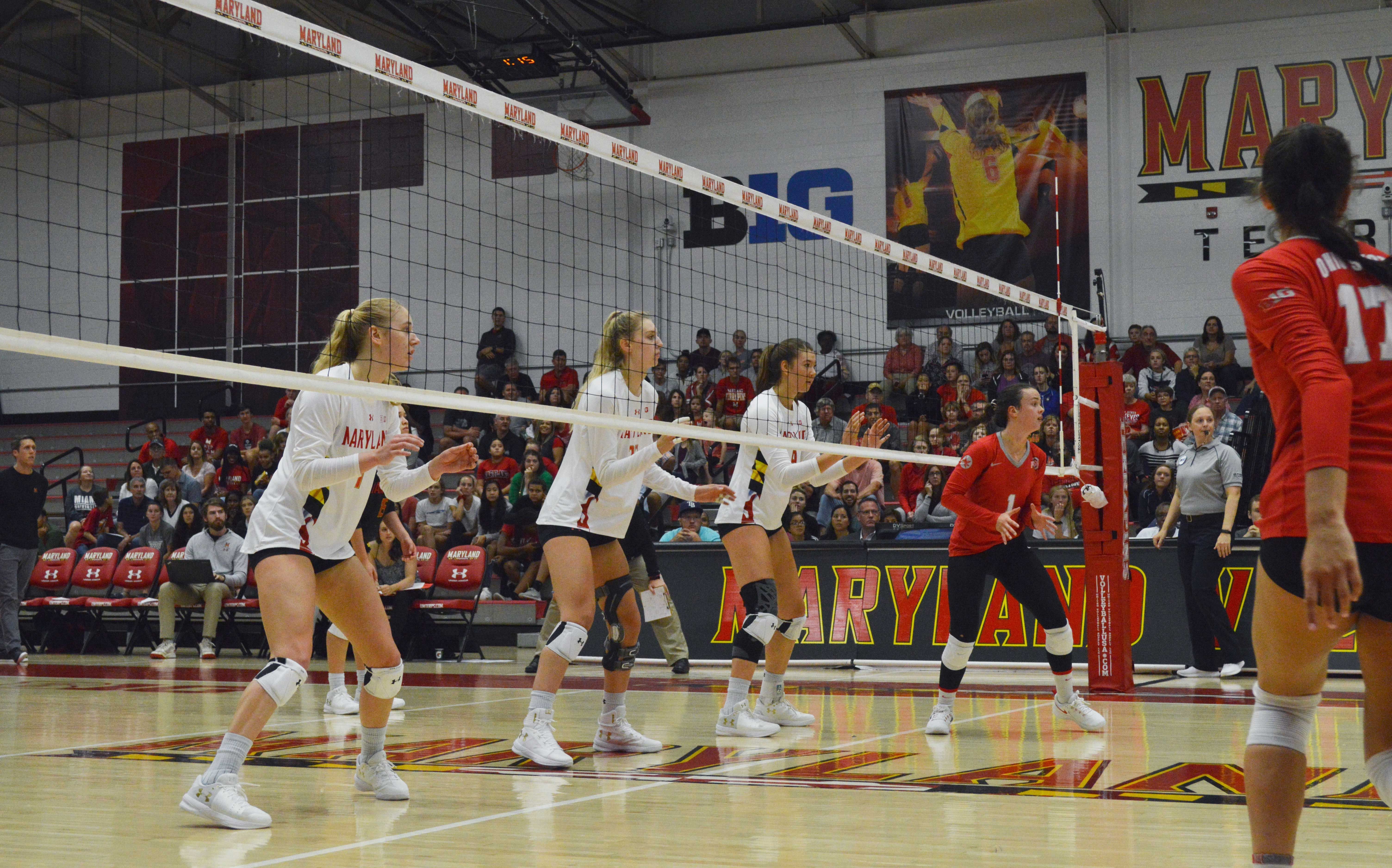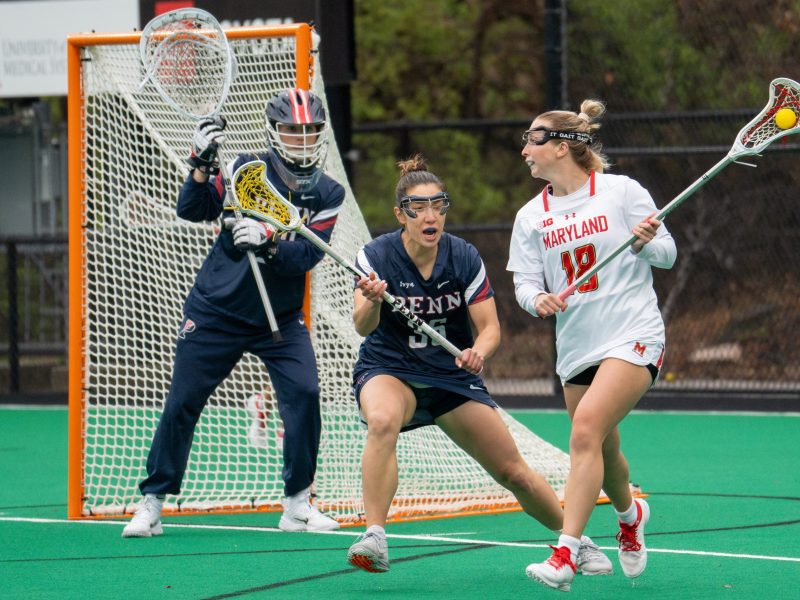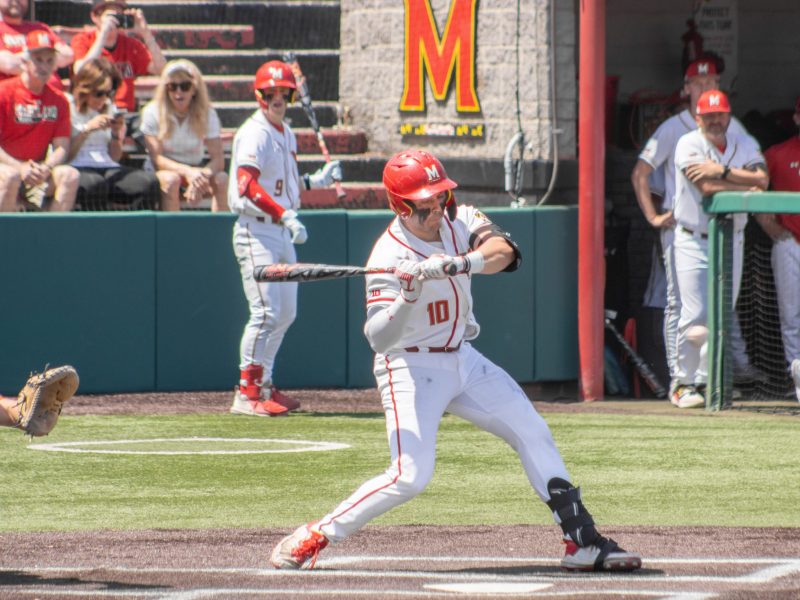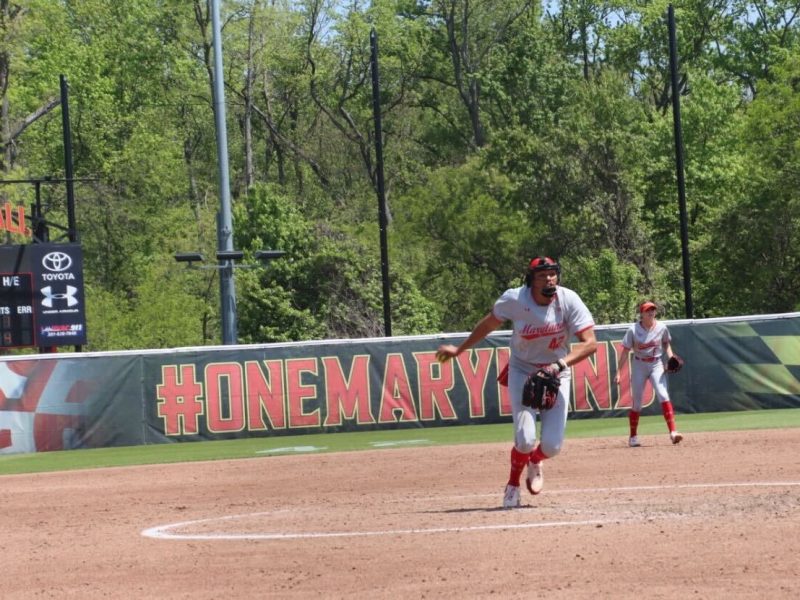Maryland volleyball has witnessed how swiftly momentum can shift a match early in Big Ten play.
Thrice so far during the season, the Terps have come back from 0-2 holes in contests. And against elite opposition, the Terps have shown they can hang, taking the first sets from No. 16 Purdue and No. 13 Michigan in dominant fashion.
However, those were the only frames Maryland has won against ranked teams, and the Terps have yet to take a set from a ranked opponent on the road. With two ranked road matches in the next week, the Terps will need to show that they have the ability to compete with elite teams on a more consistent basis.
As Adam Hughes’ squad nears the halfway point of Big Ten play, the Terps are looking to keep their strategies fresh to challenge elite opponents deeper into matches.
“One thing I think that we’re getting better at and one thing we’re trying to improve on as a program is making adjustments on the fly,” Hughes said.
[Read more: After a strong first set, Maryland volleyball falls to No. 13 Michigan, 3-1]
After an offseason full of adjustment — four of the Terps’ top five attackers from last year graduated or transferred after coach Steve Aird departed for Indiana — a young team with a first-year coach are still acclimating.
However, the burden of in-match adjustments does not fall entirely on the coaching staff. The strategic maneuvering is a combination of input from players and observations from coaches.
“It’s absolutely going both ways,” setter Nicole Alford said. “One thing that’s really good about communication with coaches and even my teammates on the sideline, we’re always talking about if they see something or if I see something.”
[Read more: Maryland volleyball can’t complete comeback, falls 3-2 to Michigan State]
Adjustments will be key for Maryland when the team faces opponents for the second time this season. The Terps toppled Rutgers in their lone rematch this year, but have six more matches against previous opposition down the stretch. It presents a new strategic challenge for Hughes.
“You don’t want to out-think yourself,” Hughes said. “You look at what you tried to do the first time through … and see if you can add some new wrinkles, just to throw some curveballs.”
While Hughes and his staff’s strategic work will be key, he feels that it’s more important for his young squad to gain experience against elite opponents.
“The biggest thing is we’ve got a young group, and they’re gaining confidence,” Hughes said. “And they need more of it and they need to realize that they do belong at this level.”



